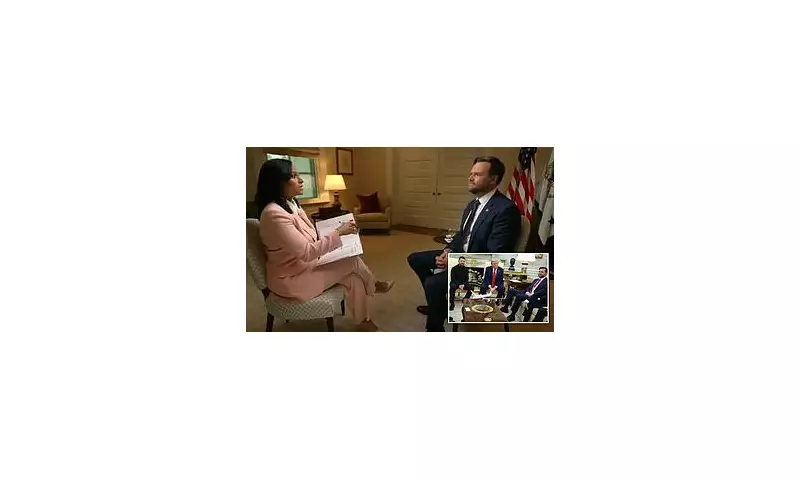
In a televised exchange that has since gone viral, Ohio Senator JD Vance engaged in a fiery debate with NBC's Kristen Welker, delivering a stinging rebuke of what he perceives as the media's infantile understanding of complex geopolitics.
The confrontation unfolded on Sunday's edition of Meet the Press, where the conversation swiftly turned to the ongoing conflict in Ukraine and Vance's controversial stance on providing further US military aid.
A Lesson in Realpolitik
Senator Vance, a rising star in the Republican party, did not hold back. When pressed by Welker to justify his position, which critics have labelled pro-Russian, Vance turned the tables on the veteran journalist.
'This is like talking to a fifth grader about foreign policy,' Vance retorted, his tone a blend of exasperation and didactic clarity. He proceeded to dismantle the premise of her questioning, arguing that the simplistic 'good guy vs. bad guy' narrative propagated by much of the media is dangerously naive.
Beyond Good vs. Evil
Vance's core argument centred on the harsh realities of power dynamics and the necessity of pragmatic diplomacy, even with adversarial nations. He emphasised that a lasting peace would inevitably require negotiation with Russia, a prospect he claims the current US administration refuses to entertain seriously.
'The question isn't whether we like Vladimir Putin... the question is how do we best serve the interests of the United States of America?' he stated, framing his position not as support for Moscow but as a sober assessment of national interest.
Media and the Manufacturing of Consent
The interview highlighted a deep chasm between the senator's worldview and the mainstream media's framing of the Ukraine war. Vance accused outlets like NBC of refusing to engage with the difficult, nuanced questions that define true statecraft, instead opting for morally straightforward but strategically shallow commentary.
This clash is more than a mere war of words; it's a fundamental disagreement on the role of America on the world stage and how its policies are debated in the public sphere.
Whether viewed as a condescending dismissal or a necessary corrective to media oversimplification, Vance's comments have ignited a fresh debate about the quality of foreign policy discourse in the United States, proving that the battle over Ukraine is not just being fought on the front lines, but also in television studios.





